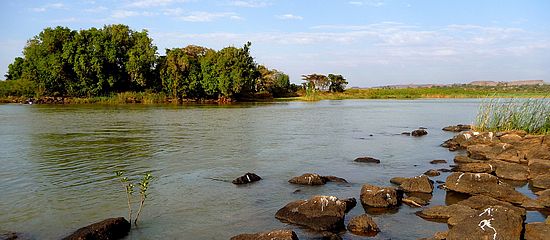
Initiative | Institute of Ancient HistoryBasel Climate, Disease, & Ancient History Lab
The Basel Climate, Disease, & Ancient History Lab is a pioneering interdisciplinary collaboration between ancient historians and climate scientists and bridges the traditional gap between the natural sciences and the humanities. Climate science has started to expand the spectrum of historical evidence to an extent inconceivable just a few years ago. The time is ripe to make use of this new evidence for elucidating the Graeco-Roman world whose study has relied so far largely on the written and archaeological record. The combined analysis of various materials promises an entirely new perspective on the ancient Mediterranean:
- paleoclimate archives
- literary sources
- biological evidence
- aDNA and isotopes
- archaeological remains
- coins
- papyri
Compared with most parts of the world, the Mediterranean region offers a wealth of natural proxies including lake sediments, speleothems, and many more that resolve parts of the past hydrological cycle, historical, and archaeological evidence. Egypt in particular provides a unique historical laboratory in which to study social vulnerability and responses to abrupt hydroclimatic change based on historical evidence, including Nile flooding data. The climate conditions may be caused by the influence of external factors, such as changes in solar and volcanic activities, or by purely internal variations in oceanic and atmospheric circulation. By using novel palaeoclimate model simulations in tandem with hydroclimate reconstructions climate variability and climate change can be connected to economic, social, and political transformations.
The interaction between climate change, environmental stress, and socio-political systems is increasingly attracting the interest of the scientific community and the general public, as contemporary concerns about global warming grow. Climatic fluctuations are rarely the only contributor to major societal collapse, but they can impact political structures, economic relationships, and cultural habits to varying degrees. Historical and scientific analytical and quantification techniques and statistical applications can be used to understand causes and effects and to link socio-economic developments to climate and environmental changes.
News & Events
Team
Prof. Dr. Sabine Huebner (Ancient History, Basel)
Prof. Dr. Markus Stoffel (Dendrogeomorphology, Palaeoclimatology, Geneva)
Prof. Dr. Dr. Verena Schünemann (Ancient DNA, Archaeosciences, Basel)
Prof. Dr. Dominik Fleitmann (Palaeoclimatology, Basel)
Prof. Dr. Jürg Luterbacher (Palaeoclimatology, Giessen)
Dr. Elena Xoplaki (Palaeoclimatology, Giessen)
Dr. François Blondel (Dendrogeomorphology, Palaeoclimatology, Geneva)
Dr. Brandon McDonald (Archaeology, Climate History, Basel)
Related Projects
- C-CIA — Climate Change Impacts and Risks in the Anthropocene (Université de Genève)
- CCHRI — Climate Change and History Research Initiative (Princeton University)
- CRIAS — Climate Reconstruction and Impacts from the Archives of Societies (PAGES)
- Klimatologie, Klimadynamik und Klimawandel (Universität Giessen)
- SoHP — Initiative for the Science of the Human Past at Harvard
- Yale Nile Initiative
